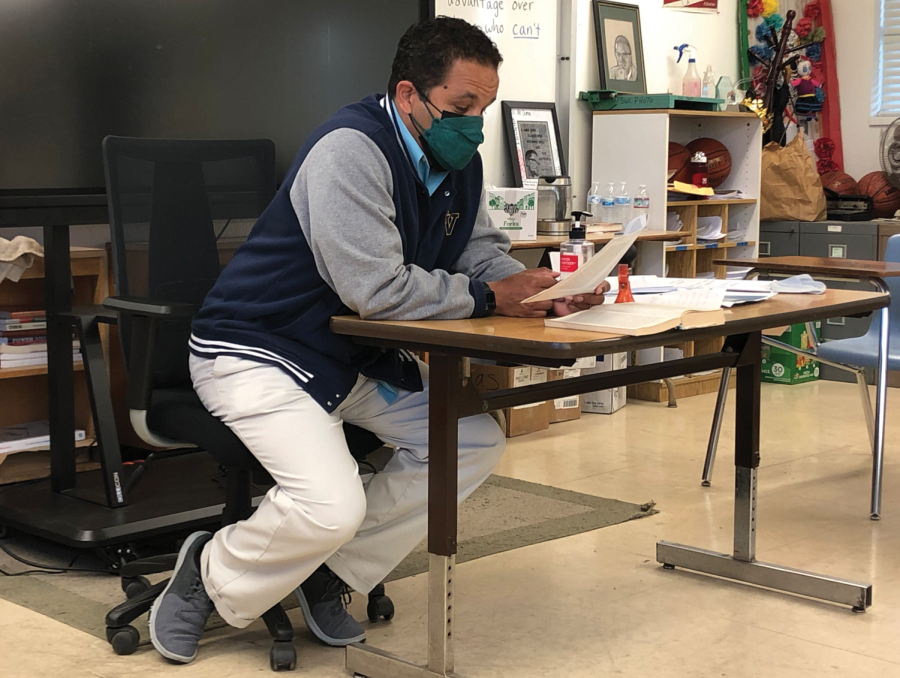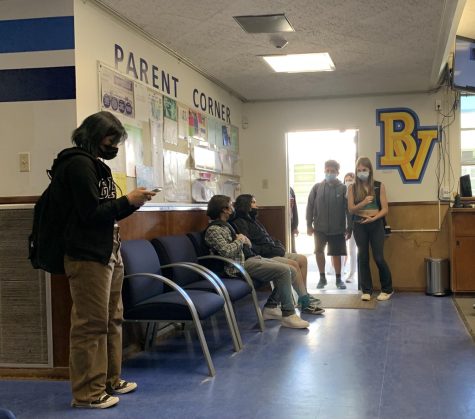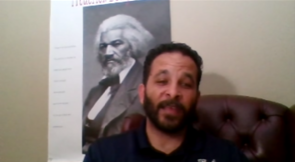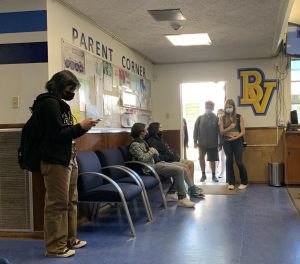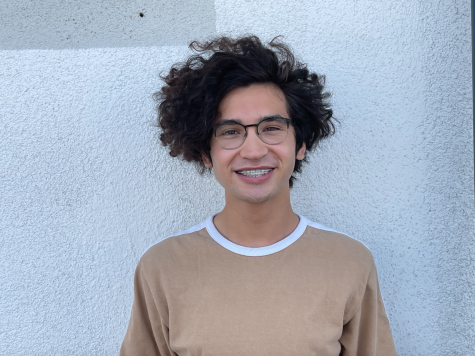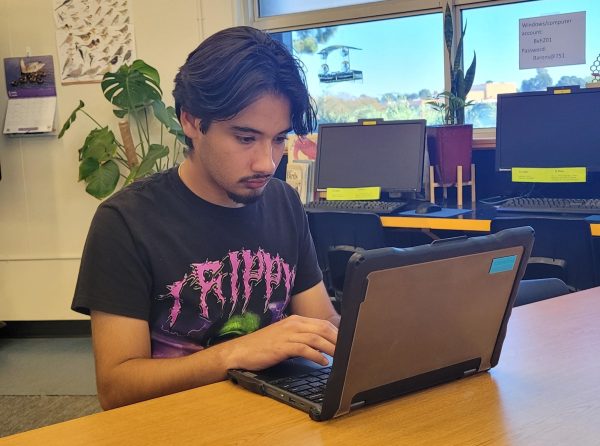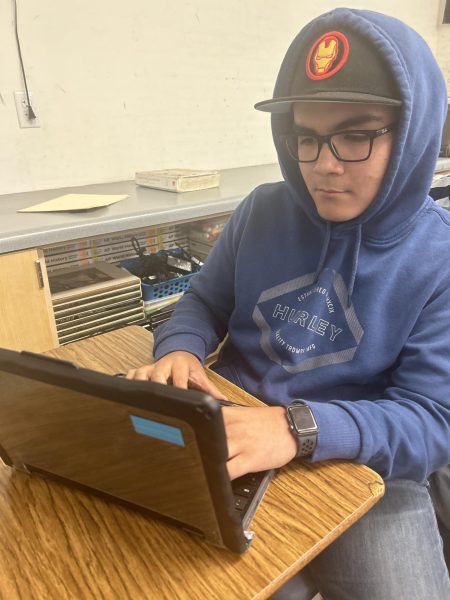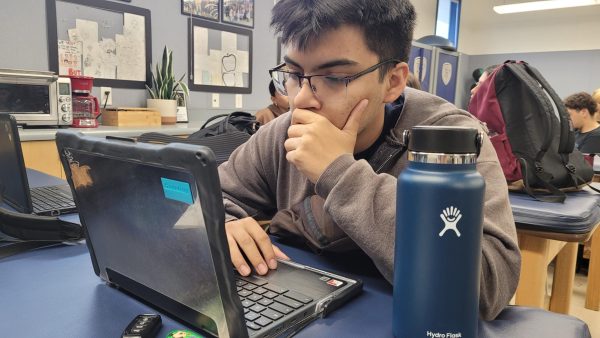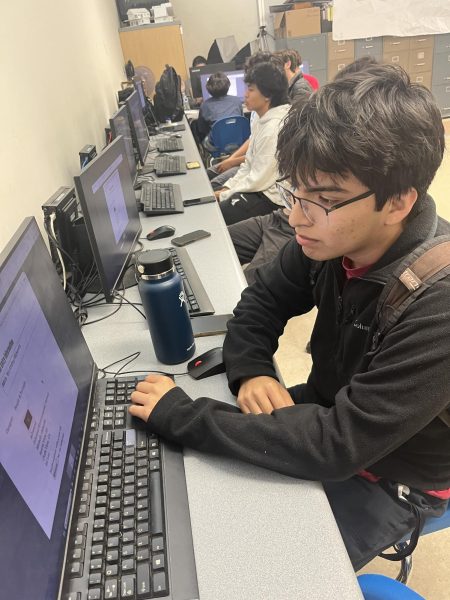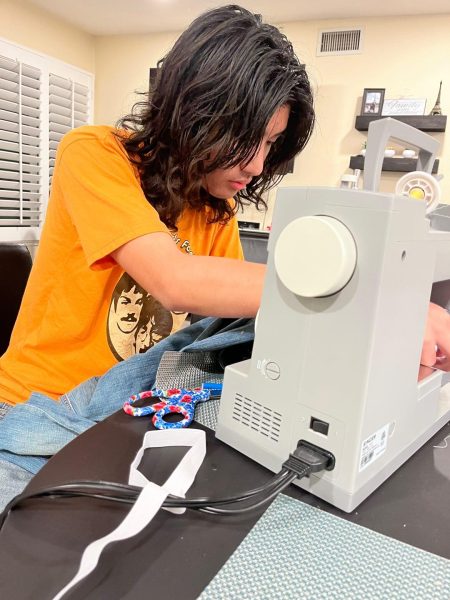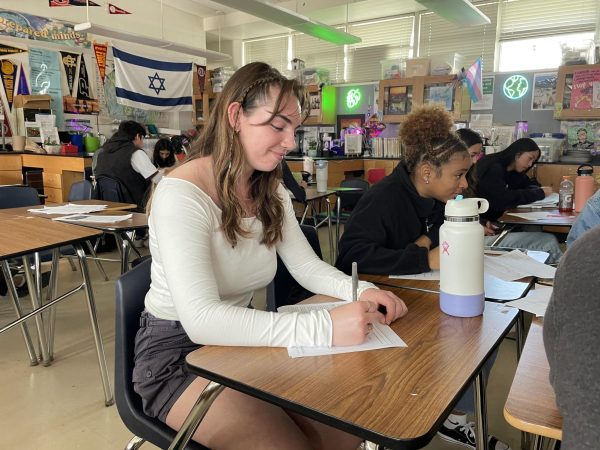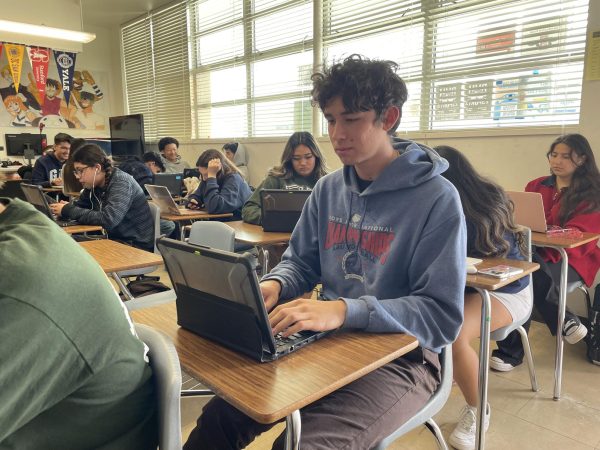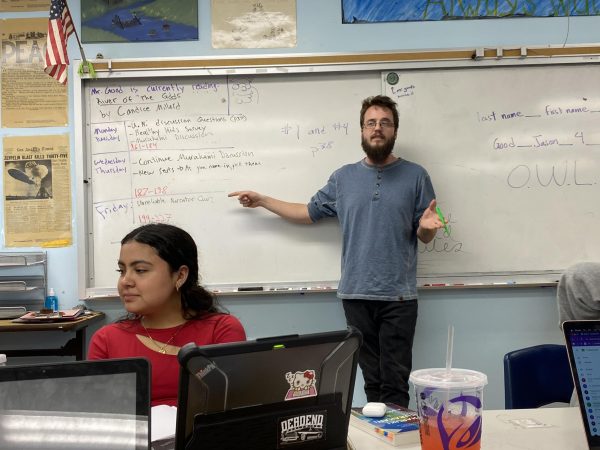Diversification of education
Ethnic Studies becomes a mandatory course for class of 2029
Ethnic Studies teacher Don Dumas reads chapter 1 of new text “Jensen”. In this book, a white author discusses the impacts of white supremacy on different social groups and the importance of acknowledging this oppressive system and white people’s role in it.
March 24, 2022
On Oct. 8, 2021, California Governor Gavin Newsom signed Assembly Bill 101, requiring students in California from grades 9-12 to take one semester of Ethnic Studies in order to receive a high school diploma. The Assembly Bill will be in full effect by the 2025-2026 school year, ensuring that schools offer at least one semester of Ethnic Studies. In order to comply with the law, the administration of the Sweetwater Union High School District (SUHSD) must come up with a plan of implementation allowing students to graduate.
“Laws [that] are often passed have to be reviewed by the [SUHSD] and they come up with a plan for adoption [into the students’ schedules]. In this case, it’s going to have to go to our board of trustees to approve [and make a final decision],” Bonita Vista High (BVH) Principal Roman Del Rosario, Ed.D., said.
SUHSD Executive Director of Curriculum and Instruction Maria Lizarraga states that every school within SUHSD will offer the course by the 2025-2026 school year. Moreover, Ethnic Studies will be enforced for the graduation requirements for the class of 2029 to comply with Assembly Bill 101.
Individual schools and districts can decide on their own for implementation for graduation but must follow the law. The material of the Ethnic Studies class can be translated to students in any way.
“We [SUHSD] have a working group that will be discussing [the implementation of ethnic studies]. As we make a decision, this will also guide us on how students will meet the graduation requirement,” Lizarraga said.
Ethnic Studies and Advanced Placement United States History teacher Don Dumas believes that this requirement will offer a great opportunity for youth to explore the world, as well as, better understand themselves and the people around them.
“After high school, kids are going to go off into many different directions [and] many different places in the world,” Dumas said. “Having taken Ethnic Studies gives students a better chance to make connections with people who are different from them. It helps them go out into the world [being] confident in who they are and without feeling like they have to be ashamed of or hide any parts of their identity.”
Dumas describes that the Ethnic Studies course attempts to bring in materials from different marginalized groups. Topics include race, sexual orientation, gender identity and religious groups. The course would highlight their histories prior to and after they faced colonization. The class also allows students to learn about many diverse populations found throughout the world such as Indigenous populations, Latinx populations and Asian and Asian-American populations.
Senior Maria Ysabel Delgado is a student currently in the Ethnics Studies class and believes that the class works to bring all topics together to create one large idea for students to understand. She explains that tasks and assignments in the class are representative of a bigger picture. Delgado encourages other students to take the Ethnic Studies course. It’s a wonderful idea to make it [Ethnic Studies] mandatory. — Senior Maria Ysabel Delgado
“It’s a wonderful idea to make it [Ethnic Studies] mandatory,” Delgado said. “I would say that to take Ethnic Studies for even a year would probably be better, but one semester is definitely a step in the right direction. I think that students deserve and need to know the full history in itself.”
Dumas and Delgado commonly mentioned that the class is based mainly on community discussion, reflection and learning from others’ experiences in society. The class focuses on the inclusion of everyone and is open to different perspectives.
“We’ll [Ethnic Studies class] look at some pretty heavy material in terms of whether it would be troubling, disturbing or deal with serious topics. A lot of this class is based around classroom discussion on these topics and how they affect us,” Dumas said.
Delgado emphasizes her growth as an individual from being enrolled in Ethnic Studies. The class made her become a more empathetic student and explains how the class provided her with more perspectives that she never had before.
“I want to become a teacher to help young people [and] young students get comfortable with themselves and empower them to make a change. That’s a big part of the Ethnic Studies curriculum,” Dumas said. “It’s about empowering young people to be change agents in their community.”

